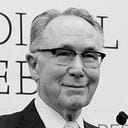An excellent piece. As a former Occupier who “found religion” in the moral compass provided by this movement, and as one who continued its work in the specialized arena of unpaid and unpayable medical debt, I can vouch for each of Micah’s points.
RIP Medical Debt (www.RIPMedicalDebt.org) is the offspring of Occupy’s Rolling Jubilee which famously brought America’s attention to the gross financial inequities in healthcare by raising over $700,000 to buy and abolish over $30M in debt — medical, student and payday loan debt. At that time my partner Craig Antico and I were working behind the scenes to make that happen. Two former bill collectors “gone good,” so to speak.
When in 2013 the RJ decided to move on to other forms of debt protest and to close down their charity, Craig and I could not find it in ourselves to stop — leading to our launching RIP as a 501(c)(3) to continue its important work.
Since that inception and through July of this year RIP has raised enough in donations to abolish over $700,000,000 in healthcare debt.
Now, to your points.
RIP was described by on television reporter perfectly: “This is not a charity, it is a movement.”
It’s a movement which is inclusive and which celebrates the donors — both as individuals and corporations — who have stepped forth to relieve Americans of this burden. We have learned that:
- They have no interest in “branding” their help. Rather, the stories of their rescue is compelling, catches the eye of media, and the organization enjoys recognition without campaigning for it.
- It is RIP which relinquishes control. When a campaign is created, whether by a church, union, high school club or a corporate supporter it is they who do the work and it is they who determine the geography in which to work their miracles. As in Occupy, Craig, I and the RIP team are simply doing our work in the background.
- RIP puts itself at risk by its very existence — challenging the economic and social forces which profit off a dysfunctional system by bringing the damage they create to local as well as national attention. RIP, started by two renegade “bill collectors,” is not exactly treated as a hero by the collections and debt buying industry. Disruptive movements seldom are.
Insofar as your other three criteria, a “willing historical moment,” a contagious mood and a new tactic, RIP — and therefore America — has benefited from what could be a perfect storm of discontent and activism.
Proof? What is the single greatest topic in America and at the Democratic debates? Yes, healthcare. Contagious? In the faith-based communities alone, RIP has over 100 churches, synagogues and major religions who have stepped up to create campaigns in their home communities and more are enrolling with us almost daily. New tactic? RIP is that, and reinvents itself continuously to meet the needs of the American public to resolve the intractable problem of poverty created by a healthcare system which cares not for its collateral damage.
Let me compliment you for this article and for your own pioneering work in educating and awakening the public to the power of activism be it corporate or personal.
It’s no longer “people bailing out people,” it’s “everyone bailing out everyone.”
Jerry Ashton, co-author of End Medical Debt: Curing America’s $1Trillion in Unpayable Healthcare Debt.
